
Perinatal & Newborn Care Continuing Education Course Bundle #5 (15.5 Hours)
Originally offered in 2018 at our GOLD Perinatal Conference. The birth of a child is a time of profound transition and adjustment. The care that a family receives during the perinatal period can have a lasting impact on the rest of their lives. Respectful, kind, culturally sensitive and evidence based care results in families who feel valued and empowered as they start the journey of parenthood. This has far reaching implications for the physical and mental health for both parents and child. As care providers during this vulnerable period, it’s important that we have a clear understanding of the potential impact of our practices.


Dr. Prabha S.Chandra, is a Professor and Head of Psychiatry at NIMHANS, Bangalore, India.
She studied at the Lady Hardinge Medical College, New Delhi and NIMHANS.
She has served as a Temporary Advisor to the WHO and UNAIDS and is the Secretary of the International Association of Women’s Mental Health, a nominated member of the World Psychiatric Association and an executive member of the Marce International society. She has been an NHS International Fellow and Consultant in Manchester, UK and a visiting professor at the University of Liverpool.
Her main areas of interest are Women's Mental Health, Perinatal Psychiatry, teaching methods, ethics and palliative care. She has nearly 180 publications and has edited several books.
She has three active research grants and has won several recognitions and awards. She has started the first dedicated psychiatry service including a Mother Baby unit in South Asia for mothers with severe mental illness.
Objective 1: Describe the magnitude of the problem related to suicidality and self harm in the perinatal period including data from various Confidential Enquiries of Maternal Deaths from around the world;
Objective 2: Describe about various methods of assessing suicidality and the risk for self harm;
Objective 3: Discuss the social, individual and psychiatric factors related to self harm.
Suicide is a known contributor to pregnancy and postpartum mortality and is now considered a direct cause of maternal death by the World Health Organisation. A systematic review of suicide related mortality and pregnancy in 21 LMIC countries found suicide related deaths from 0% in Vietnam to 23 % in Argentina. Prevalence of suicidality(ideas and attempts) during pregnancy ranges from 8% to 24% and risk factors include severity of depression, a past history of suicidal attempts, poverty and intimate partner violence. Untreated severe mental illness has been found to be an important cause based on the Confidential Enquiries for Maternal deaths in various countries. Death of the child or fetal death is also strongly associated. Assessment of suicide requires sensitive enquiry and/or the use of standard questions or tools. Infant harm maybe associated with suicide especially with severe mental illness. Prevention includes early detection and involvement of a team for active treatment.


Nell Tharpe, CNM, CRNFA, MS, FACNM began her journey to midwifery after the birth of her first child. She attended births as a nurse and with home birth midwives, and then obtained her Certificate in Nurse-Midwifery from the State University of New York in 1986. She began active clinical practice in Maine, offering women holistic health care, attending births in small community hospitals, and working in the operating room as a surgical first assistant which is where she honed her suturing skills.
A committed life-long learner, Nell received her Master of Science degree in Midwifery from Philadelphia University in 2003. Nell’s passion is bridging the gap between clinical practice and emerging evidence. Her focus is on teaching midwifery skills to foster excellence in midwifery and women’s health care in every practice setting.
Nell is the original author of the widely used midwifery text Clinical Practice Guidelines for Midwifery and Women’s Health, now in its 5th edition, and sold in over 24 counties. She is an adjunct professor at Thomas Jefferson University, in Philadelphia and provides workshops as an independent Perinatal and Women’s Health Consultant.
Topic: Suturing Skills for Midwifery Practice - [View Abstract]
Topic: Suturing Skills For Midwifery Practice - [View Abstract]
Objective 1:Objective 1: Identify core aspects of physiologic birth that can contribute to healthy physical and social growth and development;
Objective 2: Describe current evidence, recommendations, and tools to support physiologic birth practices;
Objective 3: List quality improvement measures and processes that can be used to implement the practice of physiologic birth.
Birth has evolved over millennia to support the continuation of the species. In this talk we'll explore how the physiology of birth can contribute to reciprocal social connection, development of a dynamic intestinal biome, and nurturing parenting. These factors can affect short and long term physical and social health, and contribute to resilience in the face of disease, conflict, and trauma. Birth and perinatal professionals are uniquely positioned to support families during pregnancy and birth in ways that can have a positive effect on future parenting, child health, and lifelong health outcomes. We'll address how to build a culture of caring and implement current evidence and best practice recommendations using quality improvement methodology.
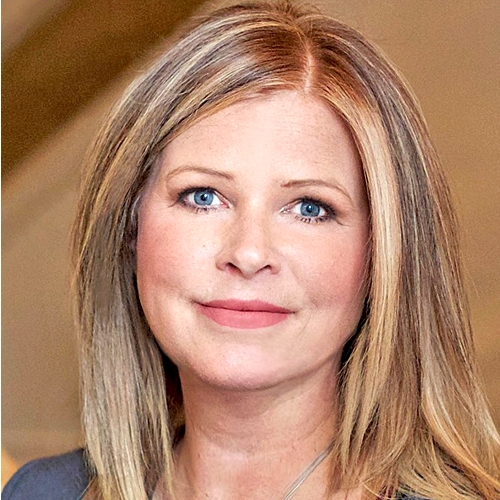

Dr. Deborah MacNamara is a developmentalist and author of the bestselling book, Rest, Play, Grow: Making Sense of Preschoolers (or anyone who acts like one). She is on Faculty at the Neufeld Institute and is the Director of Kid’s Best Bet, a Counselling and Family Resource Center. Her book has been translated into 7 languages – Korean, Italian, German, French, Danish, Spanish, and Russian.
Objective 1: List the 6 sequential phases of the development of attachment in a young child;
Objective 2: Describe the hierarchical nature of parent and child relationships and how to foster them;
Objective 3: Explain the shyness instinct and cultivating strong attachments with children.
How do we help parents best prepare for our most important task – that of raising a child? What too often gets lost in the urgency of the moment, as well as in the flood of today’s details, is what the challenge is all about – transitioning the baby from the physical womb to the attachment womb where healthy development can continue to take place. Nothing could be more important to keep in mind. In this session, Deborah will help professionals who want to reach and support parents in becoming the answer their baby will be looking for.


Sarah J. Rhoads, PhD, DNP is a telehealth researcher and educator, emphasizing the human impact of technologies on health care provider roles and patients. Dr. Rhoads is a Professor at the University of Tennessee Health Science Center. She has been the primary investigator on multiple grants related to telehealth and is a Co-Investigator with the South Central Telehealth Resource Center, which facilitates telemedicine in Arkansas, Mississippi and Tennessee. Several of Dr. Rhoads’ research and project grants have focused on the Mississippi River Delta region of the United States. Dr. Rhoads has a passion for improving maternal, neonatal, and pediatric care in rural areas.
Objective 1: Recognize obstetrical health inequalities in rural populations;
Objective 2: Identify clinical and educational approaches to perinatal quality improvement using connected health – telemedicine, telehealth, and remote patient monitoring;
Objective 3: Describe how connected health technology can improve perinatal care when implemented and used appropriately.
Despite the best efforts of the health care community, many rural women during pregnancy do not have access to obstetrical health care providers or a hospital that delivers near their home. This decreased access to services may lead to poor pregnancy and neonatal outcomes and when a woman has a high-risk pregnancy, access to care becomes a critical issue. Due to this disparity in access to care and maternal/infant outcomes, it is essential that health care providers and communities examine different ways to improve access. Connected health and telehealth technology is an innovative way to reduce access to care issues and assist women in having a healthier pregnancy, ideally improving maternal and neonatal outcomes.
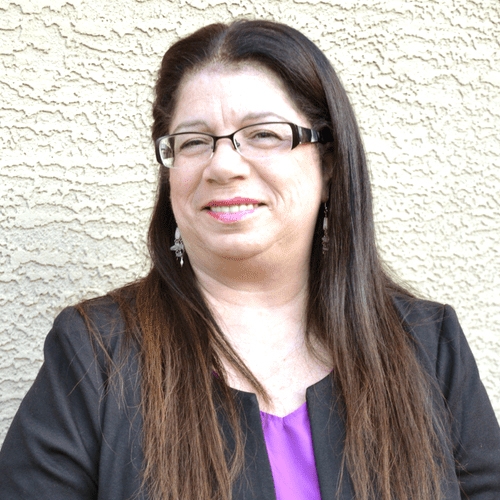

Lori J. Isenstadt, IBCLC, CCE, CBD, began her IBCLC career in 2 large hospitals and a local breastfeeding clinic. In 2007, she opened her practice, All About Breastfeeding, offering private consultations, and breastfeeding classes. Her expertise ranges from basic breastfeeding through the most complicated of breastfeeding challenges. In the last 30 years, Lori has taught breastfeeding classes to over 8000 parents where she focuses on what they should expect in the early days of breastfeeding. Lori is a member of Toastmasters International and enjoys speaking about mothering and breastfeeding. Lori is the host of All About Breastfeeding, a podcast where she interviews mothers, authors, researchers and physicians about topics related to breastfeeding. Lori believes that breastfeeding is a family affair. To help support her mission to educate families as well as corporations and business owners about breastfeeding, she has recently released the most comprehensive audio breastfeeding masterclass. She has produced over 300 shows many of which focus on breastfeeding educational topics. On a personal note, Lori resides in Phoenix, AZ is married to Alan for 38 years and is the mother of three adult children. Lori can be reached by email: [email protected] and website: www.aabreastfeeding.com
Topic: The Good news about delivering bad news: how to present difficult information to parents - [View Abstract]
Topic: The Original Foster-Mother Were Wet Nurses - [View Abstract]
Objective 1: Discuss the current state of breastfeeding initiation & duration rates;
Objective 2: List 5 specific topics that you can add to your class that will increase duration rates;
Objective 3: Explain 3 new ways to best include family members and healthcare providers in classes.
Global breastfeeding initiation rates are about 80-85%. Unfortunately, there is a significant drop off rate of exclusive breastfeeding in the early weeks, well before parents return to work. The latest statistics of 45% exclusive breastfeeding at 3 months and 28% exclusive breastfeeding rates at 6 months clearly demonstrate that duration not initiation is the real struggle. This presentation will begin by reviewing global breastfeeding rates. We will than gain some real insight from parental feedback which helps us to understand what changes we need to make in breastfeeding education. You may be surprised to find out exactly what the point of breastfeeding classes are and who we should be targeting to help support parents in the early months of breastfeeding.
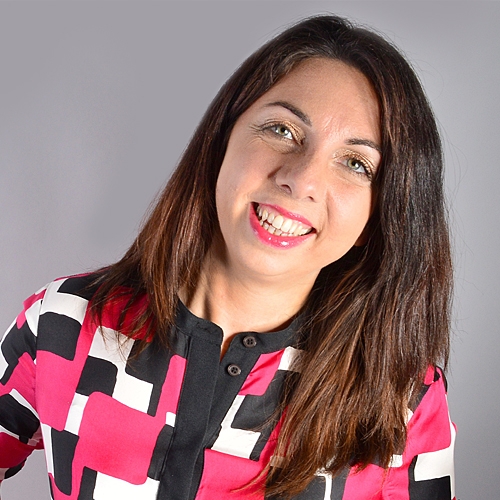

Alexia is a therapeutic coach, the author of Fearless Birthing, and the host of the award-nominated and chart-topping Fear Free Childbirth podcast. What began as a maternity leave side project is now an essential destination for women with a fear of birth with thousands of women now using Alexia’s site every month to lose The Fear. Alexia helps them to prepare for birth through her private sessions, online courses and membership community.
At the heart of Alexia’s work is a unique fear-clearance method, which women around the world are now using to help them prepare for their birth, and that she successfully uses to help women overcome tokophobia. Alexia also provides training to pregnancy and birth professionals who want to use her Fearless Birthing approach so that more women can access this level of fear-clearance support in preparing for pregnancy and birth.
Objective 1: Describe the different types of fear when it comes to birth;
Objective 2: Outline when birth education is appropriate for women with a fear of childbirth;
Objective 3: Describe how to prepare women for a fear free birth.
Fear of childbirth is thought to affect up to 50% of women. In some women, this fear is so strong that they choose not to have children. For those who do, their fear will most likely have an impact on their birth choices and their birth experience. Helping a woman to reduce her fear of birth can be transformative for her experience as a new mother as well as for the family. Reducing fear in women can also contribute to reducing the healthcare costs associated with CS delivery and post-natal mental health. In this presentation, Alexia Leachman will explore the nature of fear of birth, and its most extreme relation, tokophobia. She will discuss where fears come from, why birth isn’t always the problem, and how we can help women to overcome them so that they can go on to experience a fear free childbirth.


Dr. Yale Nogin is the creator of The Hero Dad™ Program taught at Piedmont and Kennestone Hospitals in Atlanta, GA and is the author of The Hero Dad’s Infant Manual. He has been teaching classes for expecting, new and adopting fathers over the last 15 years and counting.
His program focuses on empowering men with relevant principles, skills, systems and behaviors that earn respect from their partners which enable the couples to co-create a relaxed home environment. Being a new father with an Infant management system, post-partum support skills, and a system for “listening to understand” help new fathers feel confident and willing to participate early on which helps keep them invested in their family.
Dr. Nogin is passionate about preventing the fatherlessness epidemic from getting worse. The time surrounding birth is a crucial time to equip men with skills to help navigate the many changes and responsibilities that come with being a parent and partner so men want to come home at night.
Objective 1: Describe the importance of being conscious of the emotional state of the modern man around birth;
Objective 2: Explain the danger of partner withdrawing from mom and baby;
Objective 3: List tools to bring the partner into the fold.
The perinatal period is a pivotal point in lives of both expecting mother and father. This time period can prove to be a perfect opportunity for the birthing community to help men engage with their upcoming role and responsibilities of fatherhood and “husband-hood w/baby”. If we are able to positively influence men to be engaged with their new family from the beginning we can increase the odds of positive birth outcomes. Unfortunately, men report to feel “left out” and “marginalized” during the prenatal visits, education and delivery. To create a change and help create better family outcomes we must work together to bring men more into the fold during this time period. We will discuss ways in which the birth community can help men such as being more conscious of where men are emotionally during the perinatal visits and by using positive reinforcement of what new relevant fatherhood and masculine behavior looks like such as the ability to listen and understand our partners, self-awareness and self-control as well as our openness to grow and learn these modern behaviors and skills that most men today have not been exposed to in order to the respect they are seeking from their partners and children.
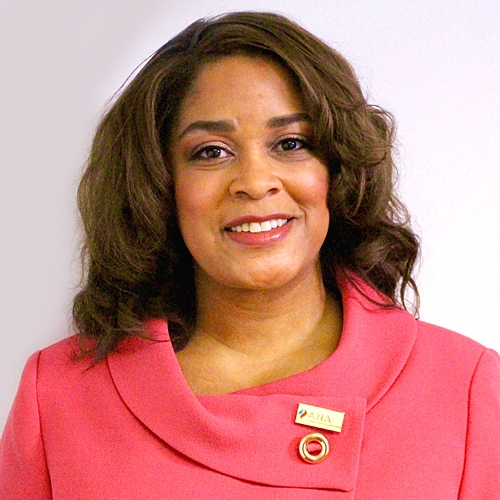

Liz Stokes JD, MA, RN, is the Director of the American Nurses Association Center for Ethics and Human Rights. She completed her BSN at the University of Virginia and worked several years as a critical care nurse. Liz received her Juris Doctor from the University of Richmond and worked as a Consultant for the D.C. Board of Nursing interpreting and conferring professional ethics provisions in nursing. She recently completed her Masters in Bioethics from Loyola University Chicago. Her leadership is also demonstrated through various charitable roles in the health and legal communities. She is a member of The American Association of Nurse Attorneys and serves on the board of the American Society for Bioethics and Humanities Affinity Group for Nursing. Liz also serves as an Associate Editor for the Journal of Bioethical Inquiry and is an active volunteer with the District of Columbia Bar Association. Liz is currently an American Academy of Nursing Jonas Health Policy Scholar.
Objective 1: Describe physical challenges pregnant or breastfeeding women face with substance use disorder and the clinical impacts for their infants.
Objective 2: Analyze a health care providers ethical obligations to deliver compassionate and transparent care.
Objective 3: Identify specific recommendations for treatment that benefit pregnant women with SUD and their infants.
It is well established that the care of pregnant or postpartum women with substance use disorder(SUD) can be a source of work-related stress for clinicians (Maguire, Webb, Passmore, & Cline, 2012). Providers must balance the ethical principle of beneficence, or preventing harm, with fidelity, which requires fairness, truthfulness, and advocacy (ANA, 2015). This can be a challenge for clinician who are in positions where there is a mandatory requirement to report a pregnant woman’s substance use. In these situations, clinicians must be compassionate, truthful, forthcoming and transparent when communicating obligations with patients to maintain trust in the patient-provider relationship. This discussion will provide recommendations for compassionate care for women with SUD including education on mental health, SUD, interpersonal violence, and treatment options (Hill, 2013). As patient advocates, clinicians can be a strong voice for pregnant women with substance use disorder and their unborn babies (Ferszt, Hickey, & Seleyman, 2013).


For over 25 years, Caroline has had the pleasure of advising new mothers, growing families, and breastfeeding babies. Along with being a certified lactation consultant in private practice, she leads a weekly parenting and breastfeeding support group for moms and their babies through six months of age. For nearly two decades at a community hospital, she taught prenatal breastfeeding classes. She works among a team of lactation consultants in a thriving postpartum unit. Caroline also practices as a nurse practitioner at a pediatrician’s office. As a provider, she enjoys integrating her knowledge and skills from pediatric nutrition and lactation into primary care. Currently working on a breastfeeding book for new moms, she remains passionate about using various means to teach breastfeeding and help families get off to a great start.
Objective 1: Review the history of kangaroo care in preterm infants and its benefits.
Objective 2: Discuss relevant infant development in the first 12 weeks and how skin to skin helps the full-term infant.
Objective 3: Teach how to hold a baby in skin to skin position safely.
Objective 4: Share ideas to encourage parents to incorporate skin to skin care and positively impact the growth and development of neonates.
Out of desperation to improve the morbidity and mortality rates of premature infants in Bogota, Colombia, innovative neonatologists developed the concept of kangaroo care . Since then, it has been modified to skin to skin care in NICU’s across the world. In recent years, the benefits of this care have been demonstrated and extended toward use in the full-term infant. With a fresh perspective, application of principles from infant development, anatomy, and physiology, are integrated to realize advantages of incorporating skin to skin through 12 weeks of age. When done correctly, skin to skin time serves as tummy time, minimizes the incidence and severity of acquired plagiocephaly, and provides a gentle treatment for torticollis. Learn how to engage, educate, and empower new families to succeed with this breastfeeding friendly intervention.
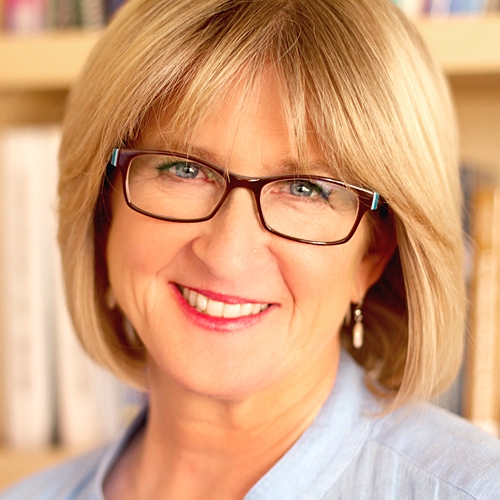

Christine Morton is a medical sociologist at the California Maternal Quality Care Collaborative (CMQCC) at Stanford University where she conducts research on maternal mortality and morbidity and helps translate the findings into maternal quality toolkits.
As a sociologist, Dr Morton seeks to explore the social meanings of maternal quality among all stakeholders. Her speaking and writing connects her to nursing, obstetric, midwifery, doula, public and social science audiences.
Her book, Birth Ambassadors: Doulas & the Re-emergence of Woman-Supported Childbirth in America, documents the history and experience of the doula role in US maternity care and is on the required reading list for DONA International.
She is a long time Lamaze board member and currently chairs a Lamaze Work Group, which aims to demonstrate the value of childbirth education. She is married to an internet sociologist and they have a son and daughter, ages 22 and 17, who were born safe and healthy thanks to great teamwork.
Objective 1: Describe U.S. trends and racial/ethnic disparities in maternal mortality and morbidity, and other maternal outcomes such as cesarean birth;
Objective 2: Discuss a vision of maternal quality improvement that balances awareness and responsiveness to "risk" (the measurement, analysis, and prevention of maternal mortality and morbidity) with meaningful efforts to support the "normality" of physiologic birth among low-risk women in hospital settings;
Objective 3: Identify the importance of, and ways to incorporate, caring practices in the provision of maternity care.
Maternal mortality and morbidity are rising, the cesarean rate just crept up and infant mortality rates are still too high in the United States. Black women are more likely to experience these outcomes than non-black women. This session will present U.S. trends and outline recent efforts to improve maternal quality of care. The triple aim of healthcare is quality, safety and satisfaction. As maternity leaders work to improve quality and safety, they still need to address the critical dimension of women’s satisfaction with their birth, whether that experience involved a severe complication or not. Standardizing responses in emergent or routine clinical situations is critical but so is the value of individualizing care. This means examining how emotional, experiential and relational aspects of maternity care affect outcomes, both long and short term. In this session, we will address the important, unasked question in maternity care today: What are the costs of not ‘caring’?


Alice Callahan completed her PhD in Nutritional Biology at UC Davis in 2008, followed by a postdoc in fetal physiology at the University of Arizona. She left the academic track in 2011 to pursue a dual career in college teaching and science writing. Her book, The Science of Mom: A Research-Based Guide to Your Baby’s First Year, about the science of raising a baby, was published in 2015 by Johns Hopkins University Press and was named one of the best science books of the year by Science News. As a freelance writer, Callahan covers health and nutrition topics – often focusing on pregnancy, infancy, and childhood – for many publications, including The New York Times, Washington Post, and Lifehacker. She and her family live in Eugene, Oregon, where she also teaches nutrition and physiology at the University of Oregon and Lane Community College.
Research continually uncovers the complex relationship between infant feeding and development. It’s driven by our fascination and desire to understand early development, but it also has real-world implications for the decisions parents make about how to feed their babies. New parents and even perinatal professionals are often confused about infant feeding guidelines, finding information to be conflicting, overwhelming, and ever-changing. We’ll start with an overview of how an infant’s gastrointestinal tract develops and what we know about how human milk consumption supports optimal development. Then we’ll delve into the latest research on intestinal permeability, early formula supplementation, and timing of introduction of solid foods to prevent allergies. Feeding is one of the primary ways that we care for and show babies that we love them, and by providing up-to-date and accurate information, perinatal professionals can help families feel calm and confident about their feeding choices.


Karen H. Strange is a Certified Professional Midwife (1996), American Academy of Pediatrics/Neonatal Resuscitation Program Instructor (1992).
She is founder of the Integrative Resuscitation of the Newborn workshop, which includes the physiology of newborn transition. She teaches the “when, why and how” of helping newborns that are either not breathing or not breathing well, with incredible clarity. She helps the provider have a sense of what the baby is experiencing which leads to a more appropriate response to newborns in need. Karen has done over 1,000 hours of debrief/case reviews regarding resuscitation. She is an international speaker and has taught over 14,000 people worldwide. There are many neonatal resuscitation instructors but Karen teaches practical neonatal resuscitation, regardless of the place of birth. And her teachings instill a strong sense of confidence and competence in providers, so they can respond in the least traumatic way.
Topic: The Remarkable Transition From Liquid to Air at Birth: The Implications for Neonatal Resuscitation - [View Abstract]
Topic: When You Know Better, Do Better - [View Abstract]
Topic: When, Why and How to Breathe for Baby at Birth: More than Neonatal Resuscitation and the Failures in Resuscitation - [View Abstract]
Objective 1: List 2 ways to correct ventilation if the air is not going into the baby;
Objective 2: Name how many breaths it takes to clear fetal lung fluid;
Objective 3: List 2 of the most common actions birth professionals do to avoid ventilating;
Objective 4: Name what is done first in a baby born with a zero apgar.
A good birth is such a gift, and a complicated birth is the reason YOU are there. When a baby is born not breathing or not breathing well, it’s the birth practitioners job to step in and help. This goes beyond just having an NRP card. One wants confidence and competence to respond appropriately even if fear and panic may be filling your body.
Karen Strange is teaching the subject that she knows best: neonatal resuscitation and how newborns go from fluid filled lungs to air filled lungs. Karen has gathered data from around the globe and pinpointed the 5 most common mistakes/failures that occur in neonatal resuscitation.
She breaks down the 5 main failures and gives tips and clarity needed for successful resuscitation of the newborn, in the least traumatic way. Learn what often gets missed, and the most frequent misunderstandings regarding neonatal resuscitation. Feel competent and confident regarding when and how to respond to a newborn in distress.
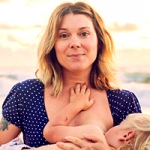

Meg is the mother of three breastfed boys and lives with her husband and children in QLD, Australia. She is an International Board Certified Lactation Consultant (IBCLC) in private practice and works with parents to help them reach their breastfeeding goals. She has a degree in psychology and her prior work was is in counselling and sexual health. She was a La Leche League Leader (breastfeeding counsellor) for seven years before becoming an IBCLC. Meg is the author of two books including, "Boobin' All Day...Boobin' All Night. A Gentle Approach To Sleep For Breastfeeding Families". She has published articles in numerous parenting magazines and websites. She was also filmed for a short documentary, "Lactaboobiephobia", based on one of her blog posts which was released in 2016.
Topic: Breastfeeding With A Tongue Tie. How Can We Help When A Tie Revision Is Not Possible? - [View Abstract]
Topic: Exclusively Breastfeeding Triplets-Case Studies - [View Abstract]
Topic: Social Media Backlash – Addressing Emotionally Charged Responses - [View Abstract]
Topic: What to Do When the Laid-Back Breastfeeding Position Doesn’t Work…Self Attachment, the Flipple Technique and the Koala Hold All With a “Hands Off” Approach - [View Abstract]
Objective 1: Identify the most common challenges that are faced by mothers and their babies with Down syndrome.
Objective 2: Offer solutions for breastfeeding a baby with Down syndrome and identify the most common accompanying challenges including; prematurity, low muscle tone and control, transitioning from tube feeding/bottle feeding and breastfeeding, how to use breastfeeding props such as pillows and optimal positioning.
Objective 3: Learn from case studies as examples of how these practical tips and solutions led to successful breastfeeding.
Objective 4: Understand how social media is helping to bring these women together and form resources and support for breastfeeding families.
Breastfeeding a baby with Down syndrome can bring many challenges to both mother and baby and many women are told they will be unable to breastfeed. This presentation will give examples of women who have faced different challenges breastfeeding their babies with Down Syndrome, yet had successful breastfeeding outcomes with the right support and information. This will include case studies with specific tips and suggestions that will help the lactation professional in offering support to these families. These women have faced many challenges including; prematurity, low muscle tone, breastfeeding into toddlerhood and a toddler who did not start breastfeeding until his mother had another baby when he was 2 ½ years old! This presentation will cover the most common challenges that families face when breastfeeding a baby with this condition and the possible solutions for them.


JAMES MCKENNA (B.A., University of California, Berkeley; M.A., San Diego State University; Ph.D., University of Oregon) Rev. Edmund P. Joyce, C.S.C., Professor of Anthropology
McKenna pioneered the first behavioral and electro-physiological studies documenting differences between mothers and infants sleeping together and apart and has become known worldwide for his work in promoting studies of breast feeding and mother-infant cosleeping. A biological anthropologist, and Director of the Mother-Baby Behavioral Sleep Laboratory McKenna began his career studying the social behavior and development of monkeys and apes with an emphasis on parenting behavior and ecology. He has published over 150 articles and six books including a popular parenting book Sleeping With Your baby: A Parents Guide To Co-sleeping. He has coedited Ancestral Landscapes In Human Evolution, Evolutionary Medicine, and a more recent co-edited volume Evolution and Health: New Perspectives (Oxford University Press. He won the prestigious Shannon Award (with Dr. Sarah Mosko) from the National Institutes of Child Health and Development for his SIDS research and is the nation's foremost authority and spokesperson to the national press on issues pertaining to infant and childhood sleep problems, sleep development, and breastfeeding.
Objective 1: Appreciate the need for a new epidemiological category and descriptor of the safest form of same-surface co-sleeping and how many USA mothers are practicing it and responding to anti-bedsharing campaigns;
Objective 2: Describe why anti bedsharing campaigns are failing and ding a disservice to responsible breastsleeping families, pushing sweeping pubic health recommendations that do not follow the principles of evidence based medicine;
Objective 3: Will be able to describe both the biological and behavioral bases of breastleeping and how it is biologically and behaviorally justified, showing marked differences in from bottle or formula-fed infants, bedsharing with their mothers.
Breastsleeping refers to bedsharing-amongst breastfeeding mothers and infants occurring in the absence of all known independent risk factors.
Given that most breastfeeding mothers bedshare, there is a critical need to develop a new SIDS/SUID discourse, one that employs harm reduction strategies, family- tailored education, evidence-based medicine, and primary advice formulated by breastfeeding and lactation communities, researchers and associations. This new bottom-up, evidence-based discourse first and foremost respects what parents say they need, want, can and are willing to do.
This discourse acknowledges that, in the United States, bedsharing is common and what helps us to understand it is to reference scientific studies (heretofore dismissed by ‘authorities’) on the powerful infantile and parental biological factors that motivate bedsharing, and the realization that sleep-related risks are not co-equal but vary along a significant continuum of relative risks ranging between acceptable (especially where exclusively breastsleeping occurs i.e. where hazardous factors are eliminated) to unacceptable where a variety of well independent “risk factors’ are present.
I argue here for recommendations based on evidence-based medicine rather than the ideologically driven opinions and assumptions of those making the recommendations which are failing after 20 years of attacks on bedsharing and bedsharing families.
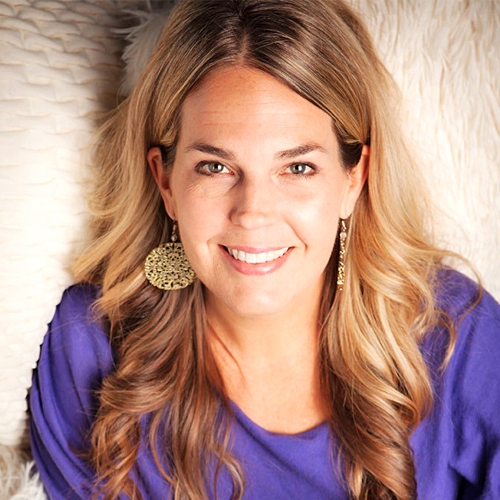

Dr. Christina Hibbert is the bestselling author of This Is How We Grow, Who Am I Without You, 8 Keys to Mental Health Through Exercise, & the forthcoming Mastery of Motherhood (www.MasteryOfMotherhood.com). She is a clinical psychologist specializing in women’s and maternal mental health, parenting, grief/loss, self-worth, and personal growth, and host of the weekly web radio/TV show, “Motherhood.”.Dr. Hibbert is a popular speaker, founder of the Arizona Postpartum Wellness Coalition, and producer of the internationally-sold DVD, Postpartum Couples. A mother of six, Christina was named “Mother of the Year” AZ, 2018, and lives in Flagstaff, AZ, with her husband and family. Learn more about Dr. Hibbert through her award-winning website and blog, “The Psychologist, The Mom, & Me,” at www.DrChristinaHibbert.com.
Objective 1: Identify at least five essential elements of quality maternal mental health assessment;
Objective 2: Explain three methods for overcoming the most common barriers to treatment, and how to best facilitate a continuum of care;
Objective 3: Describe five essential clinical skills for talking with, educating, and facilitating assessment and treatment of perinatal mood and anxiety disorders.
Knowing the signs and symptoms of perinatal mood and anxiety disorders(PMADs) is an important starting point, but what happens next? How do you bring up PMADs and maternal mental health, assess, know when to refer, and ensure clients actually receive the treatment they need? Dr. Christina Hibbert reassures, “You don’t have to know it all.” Whether you’re a medical, mental health, or other support professional working with perinatal women and families, understanding the fundamental clinical skills essential to perinatal mental health will provide the quality of care your clients and patients deserve. What can you say? How can you ensure the proper diagnosis? And what are the resources when you need to refer? Learn these skills and more in this inspirational, informative presentation.
Accreditation
CERPs - Continuing Education Recognition Points GOLD Conferences has been designated as a Long Term Provider of CERPs by the IBLCE--Approval #CLT114-07. This program is approved for 15.5 CERPs (4.25 L-CERPs, 11.25 R-CERPs).
If you have already participated in this program, you are not eligible to receive additional credits for viewing it again. Please sent us an email to [email protected] if you have any questions.
Tags / Categories
(IBCLC) Education and Communication, (IBCLC) Infant, (IBCLC) Infant, (IBCLC) Pharmacology and Toxicology, (IBCLC) Psychology, Sociology, and Anthropology, (IBCLC) Techniques, Breastfeeding Complications, Breastfeeding Education, Diversity, Equity & Inclusion, Drug & Alcohol Use, Fathers in Perinatal Care, Fear of Childbirth, Inequalities & Breastfeeding, Neonatal Resuscitation, Parent & Infant Bonding, Perinatal Mood and Anxiety Disorders, Physiological Birth, Skin to Skin & Kangaroo Care, Sleep, The Newborn Microbiome
How much time do I have to view the presentations?
- The viewing time will be specified for each product. When you purchase multiple items in your cart, the viewing time becomes CUMULATIVE. Ex. Lecture 1= 2 weeks and Lecture Pack 2 = 4 Weeks, you will have a total of 6 weeks viewing time for ALL the presentations made in that purchase.
- Time for viewing the talks begins once you purchase the product. For Live Webinars & Symposiums, the viewing period begins from when the live event takes place. Presentations can be accessed 24/7 and can be viewed as many times as you like during the viewing period.
What are bundled lectures?
- Presentations may be available individually or via a bundled package. Bundled lectures are a set of lectures that have been put together based on a specific category or topic. Some lectures will be available in both individual and lecture form, whereas others will be available only via a bundled lecture pack.
Will there be Handouts?
- YES! Each lecture comes with a PDF handout provided by the Speaker.
Some lectures include a Q&A, what does that mean?
- During our online conferences, presentations that occur live are also followed by a short 15 minute Question & Answer Session. The Speaker addresses questions that were posted by Delegates during the presentation. We include the recording of these Q&A Sessions as a bonus for you.
How can I receive a Certificate?
- If this presentation offers a certificate, once you are done viewing the lecture or the lectures within a bundle, submit your attendance record in order to be able to download your certificate. You'll be able to see which credits are offered for the lecture by hovering over the "Credits Available" link within the "Speakers & Topics" tab.
Professionals that selected this package also viewed

|
|

|











